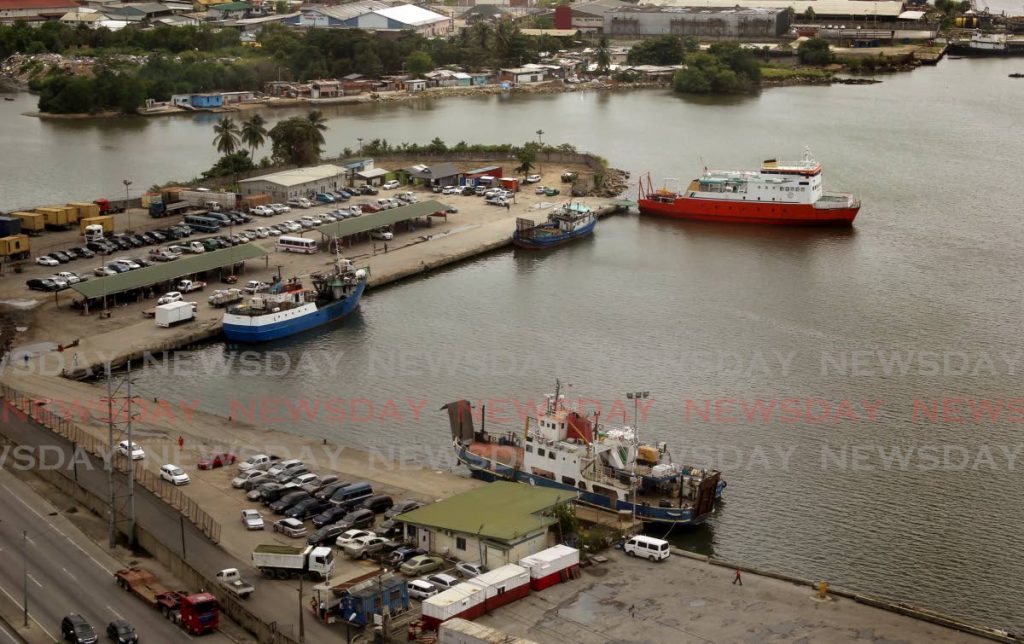Schooners vital to trade among Caribbean countries

Reuben Robertson,
FAO Representative for
Trinidad and Tobago and Suriname
On the afternoon of Monday, February 15, I stepped off a jetty in St Vincent and the Grenadines and boarded the Admiral Bay 1, a motorised sea vessel traditionally called a schooner.
Every week, the vessel sails the 18-hour journey over rough seas between St Vincent and Trinidad and Tobago.
The boat leaves St Vincent on Monday and arrives in Port of Spain on Tuesday morning. It begins the return leg of the journey on Thursday afternoon and arrives in St Vincent on Friday morning.
The captain, Stephan Simmons, is from Bequia – the second-largest island in the Grenadines at 7km2. Now age 38, he has built a career spanning two decades. A life at sea in his genes: his father was a chief engineer on board a schooner, and Stephan began his professional life working alongside him. Three years ago, Stephan was promoted to the position of captain.
Apart from captain Stephan and his eight-member crew, I was the only passenger on board the Admiral Bay 1, occupying a beautiful cabin that has a capacity for about 50 people. On deck were hundreds of pounds of agricultural produce: eddoes, dasheen, yams, sweet potatoes, ginger, bananas, gros michel, plantains, soursop, lemons and coconuts. Altogether, they took up only one-third of the cargo capacity; the boat is normally filled with food crops. It has a capacity of 108 tonnes and can carry up to six containers, yet it transports mainly break bulk or palletised cargo because there are so many traffickers and exporters plying this inter-island route. Captain Stephan said that while this is a costly operation, it is these same small farmers who keep his business afloat – especially in this time of covid19.
“How is this sustainable?” I asked.
His response, in short, was that the inter-island sea trade is too old not to survive.
For more than a hundred years, Vincentian seamen have been committed to this route. That commitment continues making food available to Trinidadians and Tobagonians and giving farmers in St Vincent and the Grenadines a livelihood.
Admiral Bay 1 is one of three vessels in a fleet belonging to the company, Boss Marines, from St Vincent. Admiral Bay 2 makes the weekly voyage with agricultural produce from St Vincent to Barbados, while the third vessel services the route between mainland St Vincent and the Grenadines. These are just a handful of the many schooners that travel up and down the islands for intraregional trade, bringing agricultural produce from countries such as St Lucia, Grenada, Guyana, and Suriname on a regular basis. These boats play an integral role in making food available across the region – particularly in Trinidad and Tobago.
We often ignore the contribution that these schooners are making, especially having young persons like captain Stephan and his crew risking their lives on the high seas to ensure that farmers can eke out a living and that food is available through trade between countries.
Traditionally, Trinidad and Tobago has been a major market for produce from St Vincent and the Grenadines, importing an estimated 60 per cent of that country’s exports. Likewise, imports from Trinidad and Tobago into St Vincent and the Grenadines have quadrupled the value of food exports from St Vincent and the Grenadines in recent years.
It is this burgeoning trade of imports from Trinidad and Tobago to St Vincent that helps captain Stephan stay in business. Onions, garlic, white potatoes, carrots, beverages, and manufactured food items are loaded from the port in Port of Spain to head to Kingstown. Construction materials, household items and vehicle parts also make the journey. Interestingly, most of the food is from extra-regional sources, so the trade does not really benefit the farmers of Trinidad and Tobago.
The St Vincent and the Grenadines food import bill was estimated at US$100 million in 2020 while total imports were estimated at US$315 million in 2019. While there seems to be a negative balance of trade between St Vincent and the Grenadines and Trinidad and Tobago, this country remains a major market for agricultural produce from St Vincent and the Grenadines.
Since agriculture constitutes 7.15 per cent of the GDP (2019) of St Vincent and the Grenadines, there must be an accommodating policy environment to foster sustainable trade. Duty concessions are given on fuel from St. Vincent and the Grenadines and the plant quarantine inspections system and port entry are facilitated by Trinidad through the introduction of the electronic plant quarantine inspection system between the two countries.
Yet captain Stephan advocates for further policy support from both governments to allow the trade to be more sustainable. The deeper the policy facilitation, the more likely the survival of all those involved in intraregional trade can be guaranteed. Their survival is linked to the survival of all of us since they play such an important role in food and nutrition security in the region.
On the other hand, the question must be asked: how are we going to improve intra-regional trade with the current system taking 18 hours over an estimated 160 km journey? This is where organisations such as the Food and Agriculture Organization (FAO) are working to find solutions for stronger, more efficient intra-regional trade and shipping in this part of the Caribbean.


Comments
"Schooners vital to trade among Caribbean countries"